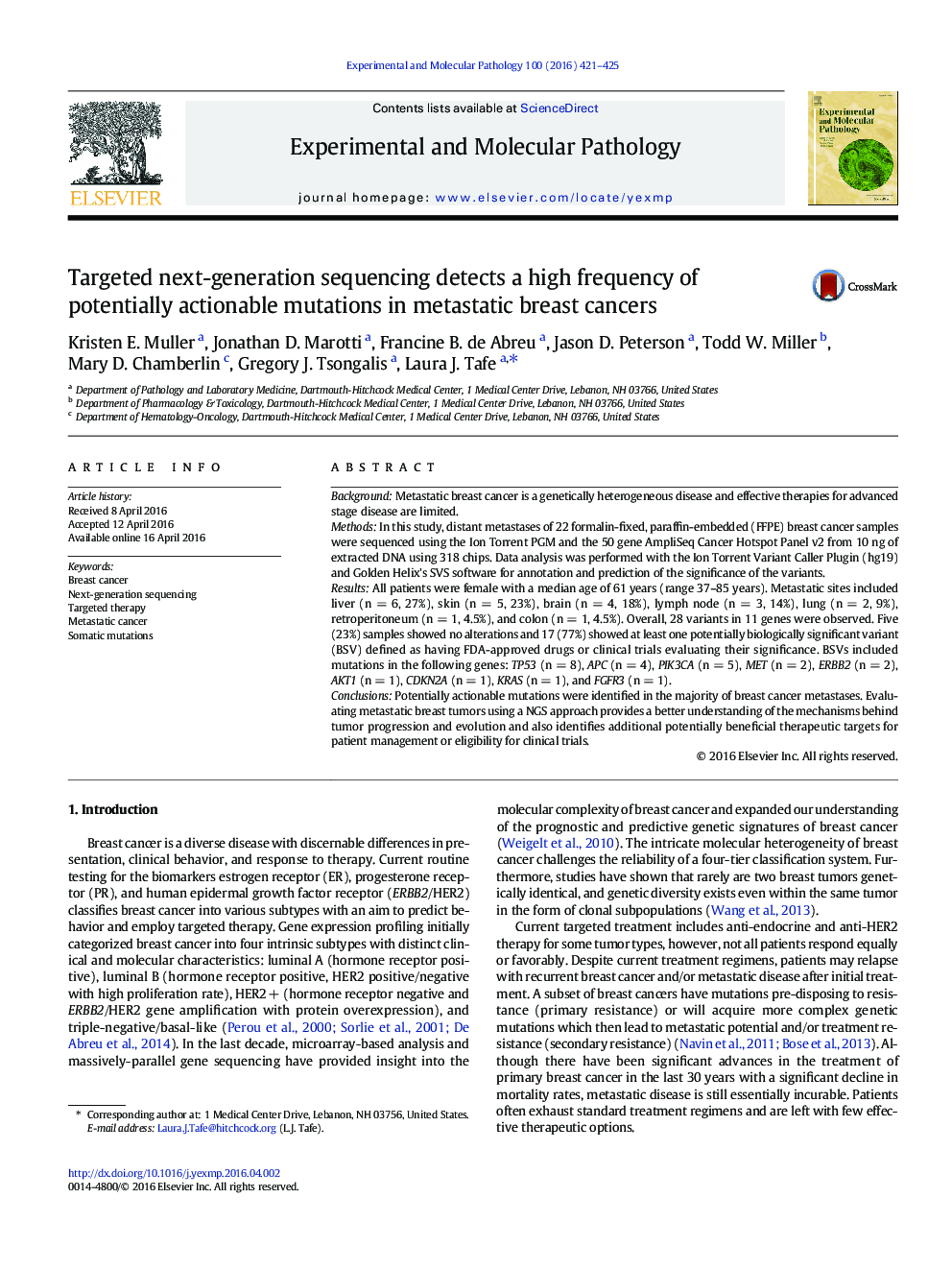| کد مقاله | کد نشریه | سال انتشار | مقاله انگلیسی | نسخه تمام متن |
|---|---|---|---|---|
| 2774856 | 1567916 | 2016 | 5 صفحه PDF | دانلود رایگان |
• In this study we identified potentially actionable somatic mutations in metastatic breast tumors using the Ion AmpliSeq™ Cancer Hotspot Panel v2.
• Twenty-two cases were sequenced, and 28 variants in 11 of the 50 genes analyzed were observed; an average of 1.7 variants per tumor.
• The most commonly altered genes included TP53, PIK3CA, APC, MET, and ERBB2.
• Metastatic breast cancer is genetically diverse and the majority of metastatic breast tumors harbor potentially actionable mutations.
• NGS of metastatic breast cancer provides a useful modality to characterize metastatic breast cancer on an individualized basis.
BackgroundMetastatic breast cancer is a genetically heterogeneous disease and effective therapies for advanced stage disease are limited.MethodsIn this study, distant metastases of 22 formalin-fixed, paraffin-embedded (FFPE) breast cancer samples were sequenced using the Ion Torrent PGM and the 50 gene AmpliSeq Cancer Hotspot Panel v2 from 10 ng of extracted DNA using 318 chips. Data analysis was performed with the Ion Torrent Variant Caller Plugin (hg19) and Golden Helix's SVS software for annotation and prediction of the significance of the variants.ResultsAll patients were female with a median age of 61 years (range 37–85 years). Metastatic sites included liver (n = 6, 27%), skin (n = 5, 23%), brain (n = 4, 18%), lymph node (n = 3, 14%), lung (n = 2, 9%), retroperitoneum (n = 1, 4.5%), and colon (n = 1, 4.5%). Overall, 28 variants in 11 genes were observed. Five (23%) samples showed no alterations and 17 (77%) showed at least one potentially biologically significant variant (BSV) defined as having FDA-approved drugs or clinical trials evaluating their significance. BSVs included mutations in the following genes: TP53 (n = 8), APC (n = 4), PIK3CA (n = 5), MET (n = 2), ERBB2 (n = 2), AKT1 (n = 1), CDKN2A (n = 1), KRAS (n = 1), and FGFR3 (n = 1).ConclusionsPotentially actionable mutations were identified in the majority of breast cancer metastases. Evaluating metastatic breast tumors using a NGS approach provides a better understanding of the mechanisms behind tumor progression and evolution and also identifies additional potentially beneficial therapeutic targets for patient management or eligibility for clinical trials.
Journal: Experimental and Molecular Pathology - Volume 100, Issue 3, June 2016, Pages 421–425
